I just turned 45. Since I don’t plan to live to 100, this is halfway no matter how you look at it. This summer I felt a strong current of energy gaining momentum inside me again, nudging me to re-examine how I live my life. Ever since then, my heart has frequently pronounced: “Carpe Diem. Act!”

Fumbling with living more intentionally is not new for me. It's a journey that I was forced to embark on more than 10 years ago when I had to re-organize my life after a divorce. I collapsed into pieces and couldn’t go to work. When I did try showing up in the office, I would go between my desk and the bathroom because I couldn’t hold back my tears. I felt like my anchor was snatched away in a flash and I was in an angry sea wobbling all by myself.
My divorce might have triggered my depression, but the way I lived created a big pitfall. For years, my single point of focus was getting more trophies, such as top jobs and degrees, which I was told would get me happiness. Starting with my acceptance at an Ivy League university, each additional trophy gradually elevated my fear of failure even more. From the time I moved back to Hong Kong, my sleeping pattern was inconsistent and I was traveling non-stop. My body sent me signals that I chose to ignore – everything could wait until I collected another trophy. Eventually, I developed a chronic headache and pain in my gut that was impossible to ignore.

I am happy to say my mental and physical health has drastically improved since then. The story I want to share is that change is possible.
Transformation takes audacity, especially when we find the certainty of the status quo comforting. So unless the pain reaches a level that you physically or mentally cannot tolerate, you might choose to do nothing. As agonizing as it might feel, being shaken to the core is a true blessing. If life hadn’t put me in a corner and forced me, I might not have had the need to be introspective. A heart-opening moment can spark the decision to live differently, but the heavy lifting lies in figuring out what to do after. With a grateful heart, here are four key lessons I have learned and am still working on in my own journey.

- Embrace imperfections in ourselves, others, and life
In a recent Dharma talk at Shunkoin Temple in Myoshinji, Japan, Rev. Takafumi explained why imperfections are in fact gifts. “If you are perfect, then life is finished because all work is done and there will be nothing that you can add to it. However, when there are imperfections, you still can add and subtract.”
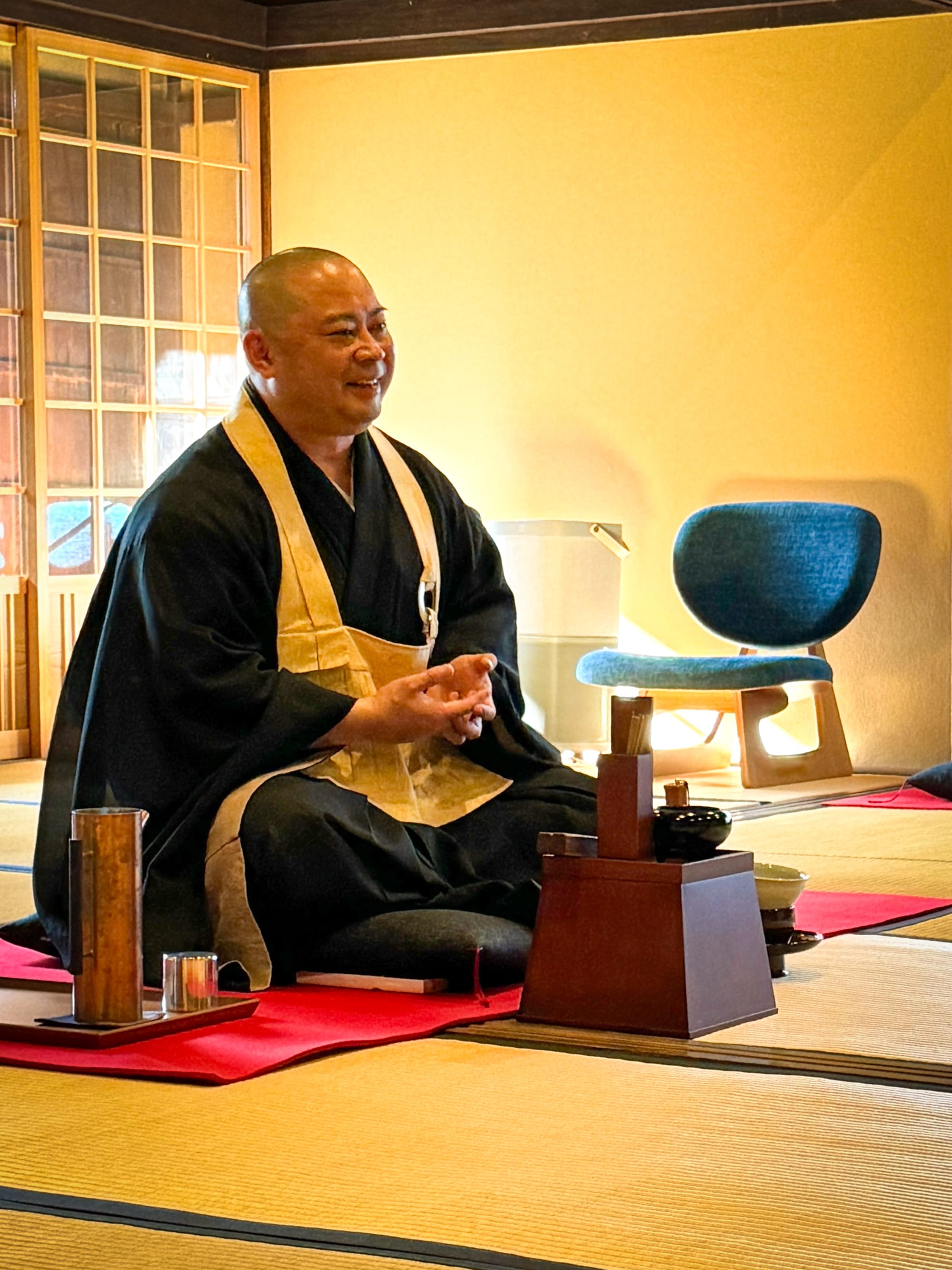
In Chinese, “perfection” has a number of translations and they all point to the same wisdom as shared by Rev. Takafumi. First, 完美 literally means a beautiful ending or 圆满, a complete circle with fullness.
Before my own divorce, I was trying to put up a “perfect” front but deep down I was physically ill and emotionally drained. My divorce gave me an opportunity to present an authentic self in front of everyone. It was very difficult at first but the love that poured in during that period made me realize what I could have been missing in life by pretending everything was OK.
- Focus on contributing, rather than fulfilling others’ expectations
Inside all of us there is a false ego that tells us we must be the center of the universe to be happy. Our false ego constantly compares us to the so-called perfect self that is defined by society. The false ego wants external validation to justify our existence. The false ego wants us to choose being right at all costs. If we are not careful, this false ego can swallow our soul and life. The internal conversations can become so loud that we lose the ability to hear messages from our own hearts. We then become slaves to others' expectations, rather than living at our own will.
Over time, I’ve noticed that allocating more time to think about supporting others, rather than meeting their expectations, leads to greater happiness. For example, instead of focusing on how to get promotions at work, I think about how I can help make the business successful, and how I can be a contributing member of the team. I am not saying promotions are not important, but when you change your mindset you will actually bring much better results and connections with your colleagues and customers, which ultimately will enhance your career.
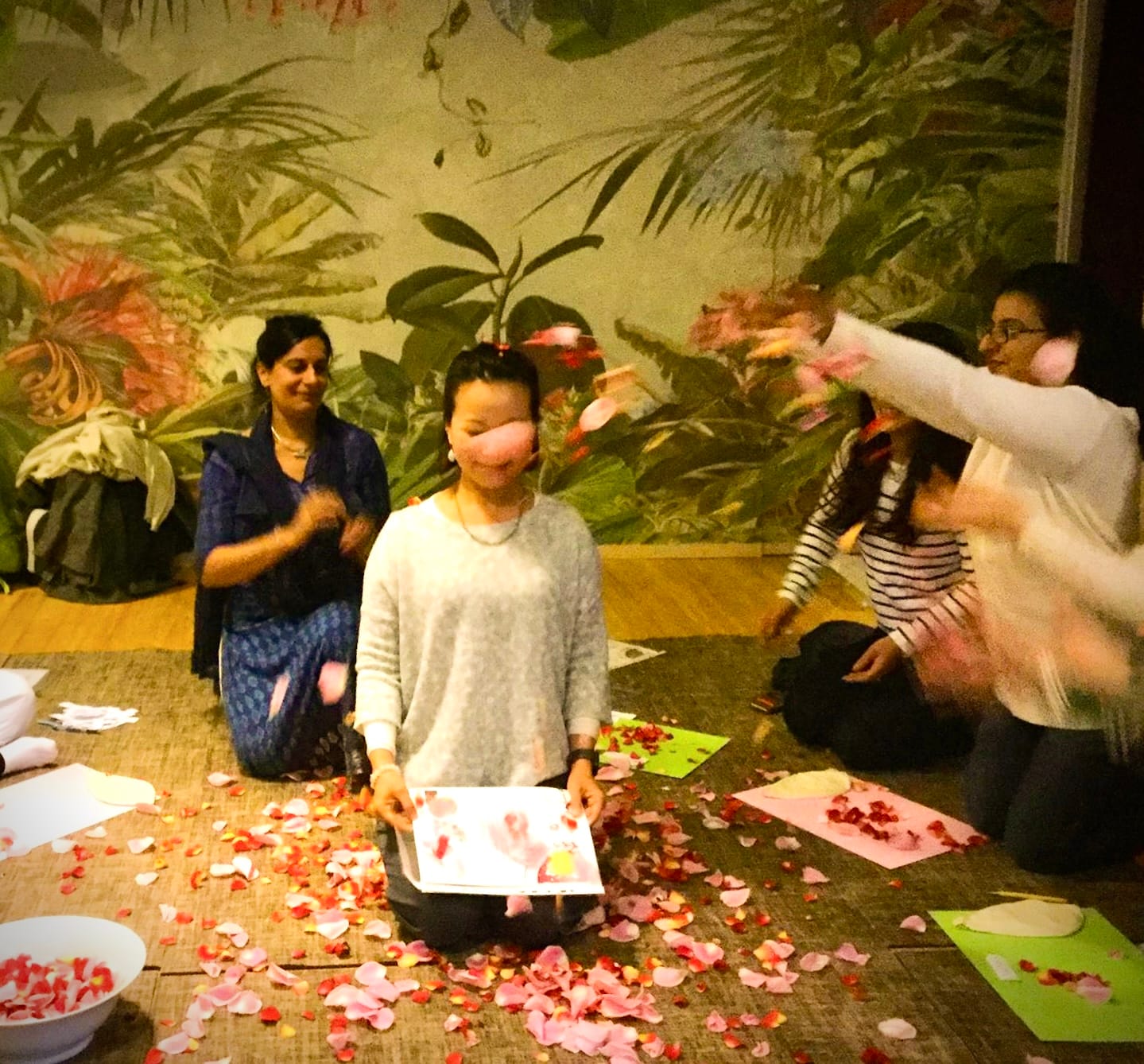
One concept that helped me shift my mindset is one I learned during my Yoga Teachers’ training with Sudevi: Think of yourself as just an instrument for the universe (or any higher power aligned with your religion) to distribute certain resources and building blocks in the world, e.g., talents, money, skills, and intelligence. What if our assets are only on loan to us and we are just conduits?
- Update your narrative and be the source of light for yourself
We spend lots of effort chasing trophies – be they love, money, fame, or attention – in order to present certain stories externally just so our ego can feel good about the validation it receives in return.
Have we considered skipping the middleman and simply giving ourselves direct credit and praise when we do something right? When was the last time we updated ourselves on our latest needs, fears, dreams, and reasons to be proud?
The way you lived yesterday doesn’t have to be the way you live today or tomorrow. The danger of not updating our narrative is that we may be reacting based on the past not realizing the context today may have changed. For example, we might have been emotionally neglected as a child because our parents were busy making ends meet. To gain our parents' attention, we would have worked hard to get good grades. As an adult, we might be chasing trophies to continue this childhood pattern of impressing others without asking ourselves what would make us happy today.
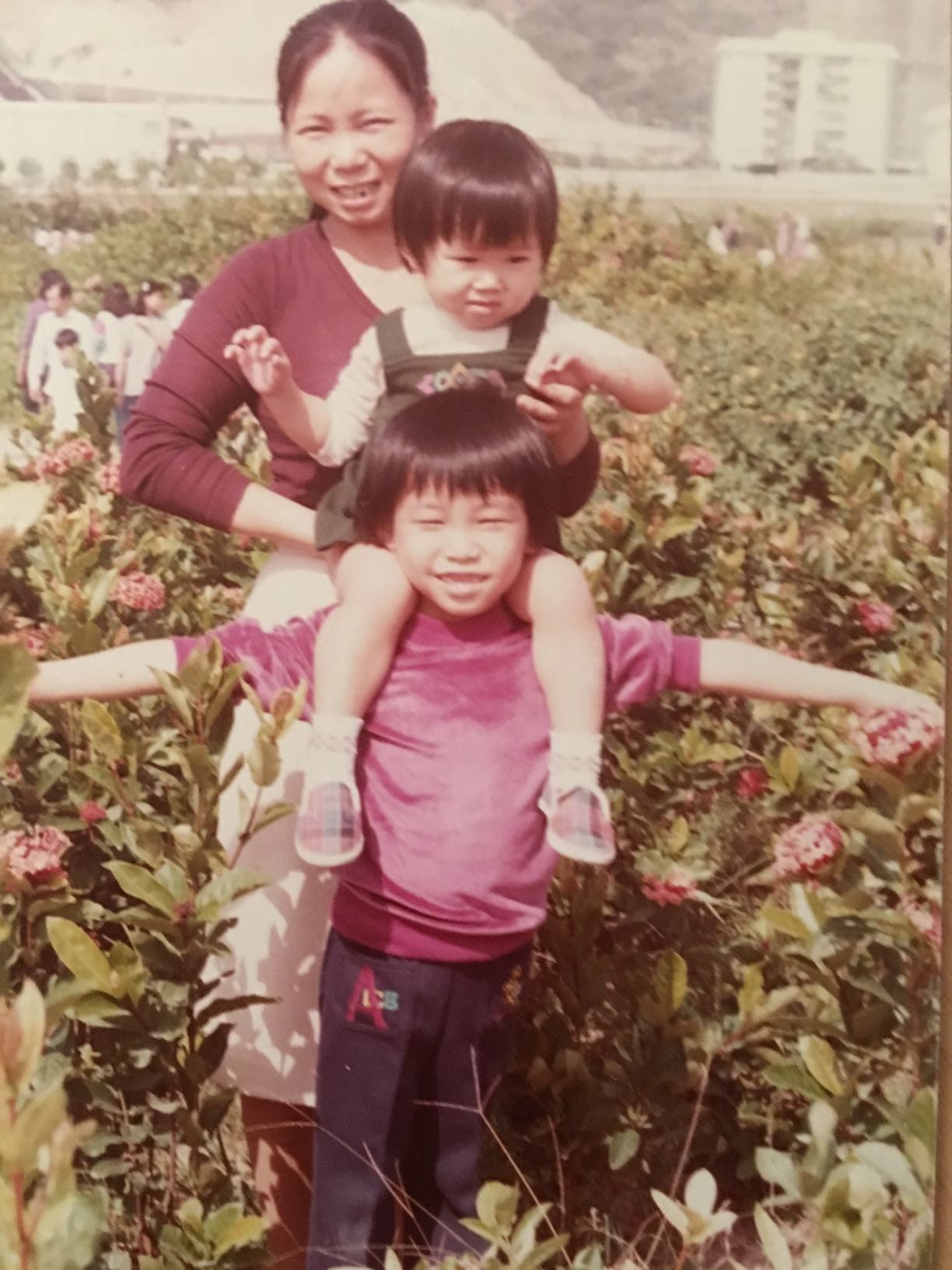
To revise our narrative, we can start by challenging our internal dialogues regularly. Instead of listening to your head all the time, try to shift your focus to your heart from time to time. If your heart rate goes up, and you feel anxious, ask yourself why. If you are doing something that makes you feel like you are in the “flow” – a peaceful mental state where you are completely absorbed in a single task or activity, without regard to yourself, the passage of time, or the outside world – also investigate and make a note. Doing a metta, or love and kindness meditation, can also strengthen your connection to your heart. I’ll share more on different kinds of meditation in future blog posts.

- Schedule self-reflective time to evaluate the ingredients of your life
The same input and process will produce exactly the same output. Think of life as a dish. The taste is determined by the ingredients you include and the way you cook it. According to Harvard University researcher Arthur C. Brooks, happiness is built on four pillars: family, friendship, work, and faith. For me, these four pillars are the ingredients. Your everyday lifestyle patterns such as sleeping, eating, moving, playing, etc., are the cooking part of your life. Small things you do every day can make a big difference over time.
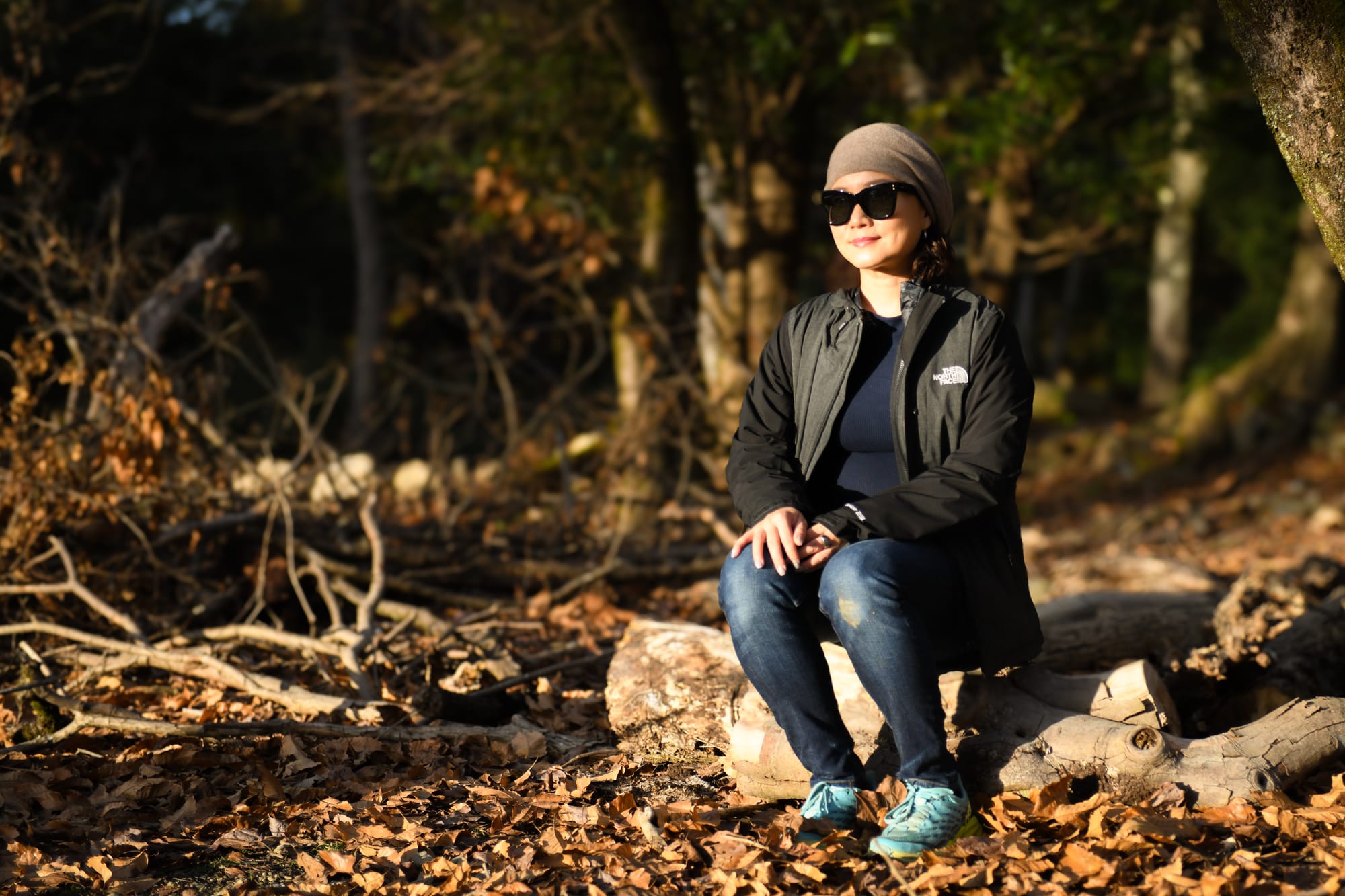
Just like cooking, the input enables you to make a decent guess about the result. Selected fresh ingredients that bring out the flavors of each other, prepared thoughtfully, will likely yield the best outcome; large quantities of low-quality ingredients cooked halfheartedly are unlikely to produce a delightful meal. Life is the same way.
At any restaurant, a good chef would make note of the recipe and he or she might also be inspired to alter certain ingredients to improve the dish during the process. Since we are the masters of our destinies, shouldn’t we all play the role of the chef in our own lives? If we want to live better lives, would it make sense to also do our own reviews regularly? It sounds cliché, but make some appointments with yourself for the New Year now. Carving out time for your own review can ensure you live the life you intend to live.
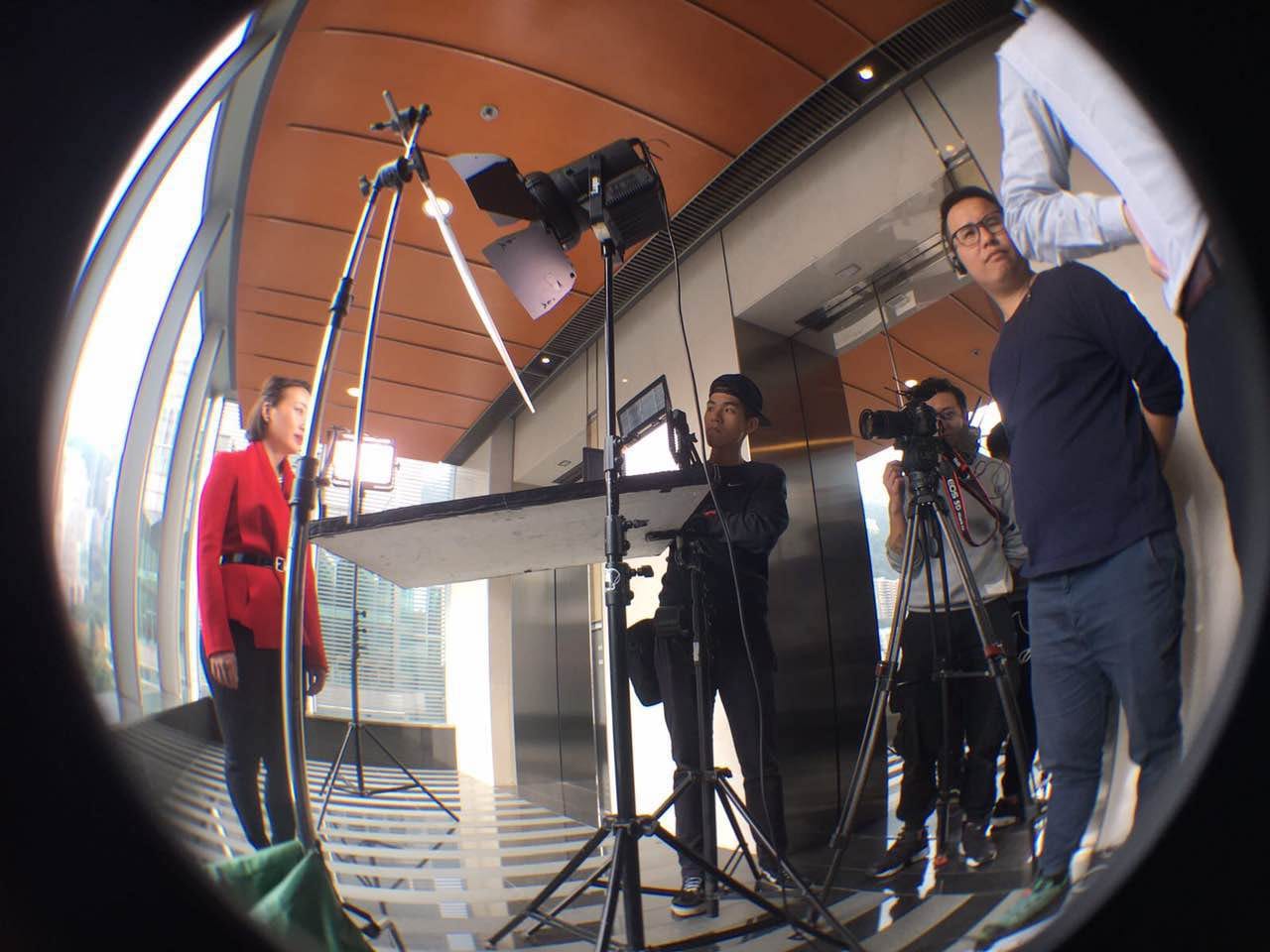
As an independent professional woman without a husband and kids, I can almost hear murmurs of, “Oh, poor thing” and “I wonder what happened to her” as I walk around town. Even better, they sometimes whisper to my family and friends as if such an inquiry would break me.
I would lie if these reactions had never affected me. With practice, though, I am taking much more control of my own narrative, my recipe, my relationship with myself, and my heart. It has been a journey with many struggles and tears, but I am proud of my evolution.
Looking back over the past 45 years, I would like to thank all my friends, family, and teachers who have shown their love and support for me along the way. Transformation is a lifelong journey – let’s support one another. Enjoy the ride!
滋养生活的四个启示
我刚满45岁。既然没打算活到100岁,不管怎么看,这已经算是过了一半了。今年夏天,我感到一股强大的能量在我体内蓄势待发,促使我重新审视生活。从此以后,我的内心不停呼喊:“活在当下,行动起来!”
摸索如何能更有意义地生活,对我来说并不陌生。十多年前,我在离婚后不得不重新整理我的生活,被迫踏上这个旅程。我四分五裂,没法工作,即使真的去上班,我也会在办公桌和卫生间之间来来回回,因为控制不住眼泪。我的生活之锚在一瞬间被夺走,孤身一人在波涛汹涌的大海中摇摆。
离婚可能是导致我陷入抑郁的诱因,但我的生活方式才是个大坑。多年来,我一心关注获得更多的荣誉,比如顶级的工作和学位,我被告知这是幸福的来源。从我被一所“藤校”录取的那一刻开始,每获得一项荣誉,都逐渐提高了我对失败的恐惧。从我回到香港的那个时候开始,我的睡眠已经变得不规律,人更是奔波个不停。身体向我发出了信号,但我选择了视而不见——一切都可以等到我再获得一份荣誉。最终,我患上了慢性头痛和胃痛,问题再也无法忽视。
欣慰的是,自那以后,我的身心健康状况有了显著的改善。我想要分享的信息是,改变是有可能的。改变需要勇气,特别是当安守现状的确定性令人安心时。所以,除非痛苦达到身心无法忍受的程度,否则你可能选择无所作为。重大打击或许痛苦,但实则是一件幸事。如果生活没有把我逼到墙角、迫使我改变,我也许就没有必要自省。某个打开心扉的时刻可以促使你决定换种过法,但更重要的事情在于想明白之后该怎么做。怀着一颗感激的心,我列出了我在自己的旅程中学到并仍在努力实践的四大启示。
接受自己、他人和生活的不完美
在近期日本妙心寺春光院的一次法语中,川上住持解释了为什么不完美实际上是一种馈赠。他说:“如果你是完美的,那么生命就完结了,因为所有的工作都完成了,不用再添加任何东西。但如果存在不完美,你仍然可以做加法、做减法。”中文里有很多对应的意境,与川上住持所分享的智慧有共通之处。"完美" 字面上意指
美好的结局,"圆满"是一个丰满完整的圆圈。
在离婚之前,我试图展现一个“完美”的外表,但在内心深处,我身体不适,情绪倦
怠。离婚让我有机会在众人前展现真实的自我。一开始很困难,但在那个时期涌入的爱让我意识到,假装“一切都好”可能让我错过了生命中的一些东西。
注重贡献,而非满足他人期望
每个人内部都存在一个虚假的自我,告诉我们必须成为宇宙的中心才能幸福。虚假的自我总是将我们和社会定义的所谓完美自我进行比较。虚假的自我希望通过外部的认可来证明我们的存在。虚假的自我希望我们不惜一切代价选择正确。如果我们不小心,这个虚假自我就会吞噬我们的灵魂和生活。内心对话可能会喧闹到让我们失去聆听自己内心的能力。我们被他人的期望所奴役,而非按照自己的意愿生活。
随着时间的推移,我注意到,更多地思考如何支持他人,而非满足他们的期望,会带来更大的幸福感。例如,与其一门心思钻研如何在工作中获得晋升,我会思考如何帮助企业取得成功,如何在团队中作出贡献。我不是说晋升不重要,但当你改变心态时,实际上会取得更好的结果,与同事和客户建立更好的关系,最终为你的职业生涯带来进步。
我在参加Sudevi的瑜伽教练培训时学到的一项概念促使我改变心态:将自己看作是宇宙(或你所信奉宗教中的任何高阶力量)分配世界上的资源和构件(如才华、金钱、技能和智慧)的工具。试想我们的财产只是借给我们的,而我们只是一种通道,会怎么样?
更新你的叙事,成为自己的光源
我们花费大量精力追逐荣誉,从爱情到金钱,从名望到关注,只为向外界呈现特定的故事,让我们的自我得到认可、感到愉悦。我们可曾考虑绕过这些中间人?如果做对了什么事情,我们可否直接表扬自己?我们上一次向自己倾诉最新的需求、恐惧、梦想和骄傲的理由,又是在什么时候?
昨天怎样生活,不代表今天或明天就应该怎样生活。倘若不更新自身的叙事,便有可能基于过去的经历作出反应,而认识不到今天的情境可能已经改变。比方说,我们儿时可能因为父母忙于生计而在情感上被忽略。为了引起父母的注意,我们要努力取得好成绩。长大后,我们可能一直在追逐荣誉,延续这种吸引别人注目的童年模式,而没有扪心自问:今天是什么让我们快乐?
改变自身的叙事,不妨从定期挑战自己的内心对话开始。不要总是听从你的头脑,而是尝试时不时将注意力转移到内心。如果心率上升,感到焦虑,问问自己为什么。如果做一件事情能让自己“流动”——这是一种平静的心理状态,完全沉浸在某一项任务或活动中,而不在意自身、时间流逝或外界——也可以探究并记录。进行慈爱
(metta)冥想也可以加强与心灵的联系。我将在未来的博客中分享更多不同类型的冥想。
安排自省时间,评估生活的“原料”
同样的投入品和工艺将产生完全同样的产出。将生活看作一道菜,口味由你选择的成分和烹饪方式决定。根据哈佛大学研究员阿瑟·C·布鲁克斯的说法,幸福建立在四个支柱上:家庭、友谊、工作和信仰。对我来说,这四个支柱就是成分。日常的生活模式,比如睡觉、吃饭、运动、玩耍,就是你生活的烹饪原料。随着时间推移,每天做的小事情也能产生很大的作用。
与烹饪一样,可以通过投入来合理猜测结果。新鲜的原料能够衬托出彼此的味道,经过周到的准备,很可能产生最好的结果。大量使用低劣的原料,心不在焉地烹饪,不太可能制作出美味的餐点。生活亦然。
在任何餐馆,优秀的厨师都会记录食谱,也会在烹饪过程中受到启发,改变某些原料,从而改进菜品。既然我们是自己命运的主宰,难道我们不应该在自己的生活中扮演厨师的角色吗?如果我们想过得更好,是否应该定期进行自我评估?这听起来是老生常谈,但新年一年不妨给自己约出时间。留出时间自我反省,离过上自己想要的生活就不远了。
作为一名没有丈夫和孩子的独立职业女性,当我走在街上时,几乎能听到私下的低语:“哦,可怜的人”和“我想知道她遭遇了什么”。甚至有时候他们会同我的家人和
朋友窃窃私语,仿佛这样的打探会让我崩溃。
如果说这些反应从未影响过我,那我肯定是在撒谎。但通过实践,我越来越能掌控自己的叙事、我的食谱、我与自己的关系,以及我的内心。这是一段充满挣扎和泪水的旅程,但我为自己的成长感到自豪。
回首过去的45年,我想感谢一路上所有向我表达爱意和支持的朋友、家人和老师们。转变是一场终生的旅程,让我们互相支持。享受这段旅程吧!

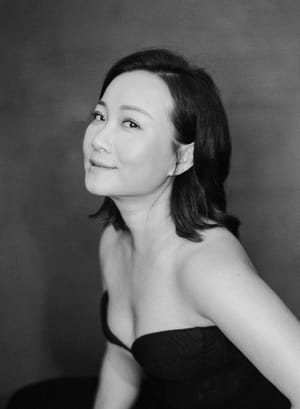


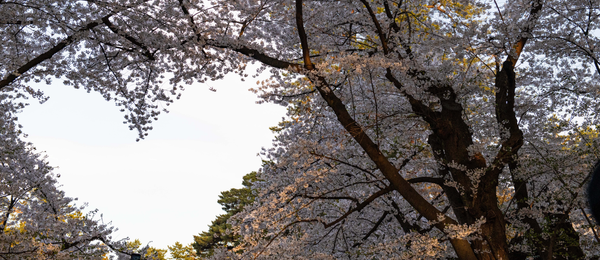


Member discussion